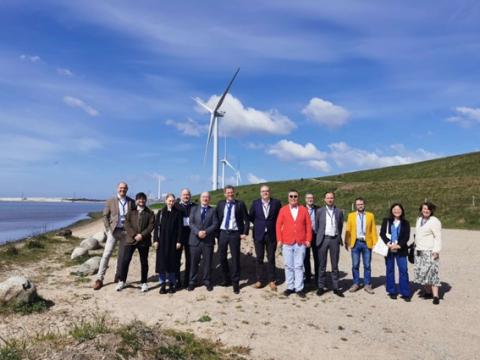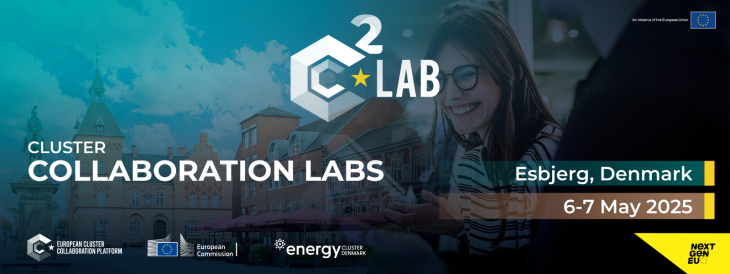C2Lab Esbjerg: Powering Europe Green Future Through Cluster Collaboration
On 6–7 May 2025, the European Cluster Collaboration Platform, in partnership with Energy Cluster Denmark, hosted the seventh edition of the Cluster Collaboration Lab (C2Lab) in the vibrant port city of Esbjerg, Denmark. This unique two-day workshop brought together over 20 cluster professionals, innovation actors, and public authorities from across Europe, all committed to shaping a greener and more resilient Europe.
Day One: In the harbour, exploring a city of green ambition
The C2Lab opened with an immersive tour of the Port of Esbjerg, a living showcase of the city’s transformation into a European hub for renewable energy. Uffe Lundgaard from Business Esbjerg guided the participants through the port’s facilities, including offshore wind turbine pre-assembly sites and green hydrogen projects.
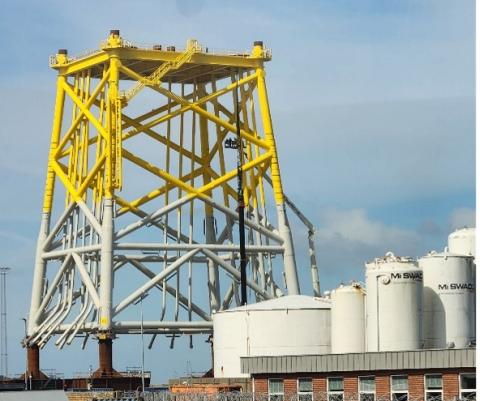
|
In the afternoon, the European Commission and Danish representatives opened the plenary session.
Glenda Napier, CEO of Energy Cluster Denmark, offered insights into Denmark’s innovation ecosystem, including over 250 active projects and a €40 million innovation portfolio. She encouraged participants to leverage cluster collaboration to accelerate clean energy solutions and finished her presentation by underlining the importance of global cooperation and strategic fundraising to scale up the technological solutions necessary for a sustainable and integrated energy system.
Jesper Frost Rasmussen, the Mayor of Esbjerg, talked about transformation from a fishing town into a leading European Energy Metropolis. He showcased the city’s strategic investments and infrastructure supporting Europe’s green and energy security objectives. These include the expansion of offshore wind infrastructure through the enlargement of the port and the deepening of its fairway to accommodate next-generation vessels. Esbjerg’s green hydrogen production, launched in 2020, is being scaled up with a new pipeline under development to Germany. The mayor concluded by reaffirming Esbjerg’s commitment to becoming a central hub for green technologies, showing how regional action can significantly contribute to the EU’s climate objectives.
After the opening, attention turned to funding instruments supporting clean technology and industrial transformation. Claus Meineche, Head of Secretariat at the Danish Energy Agency’s EUDP, presented Denmark’s ambitious national funding scheme. He showcased initiatives like Project Greensand, Europe’s first cross-border offshore CO₂ storage project, and NextGenBladeAccess, an innovation improving offshore wind maintenance.
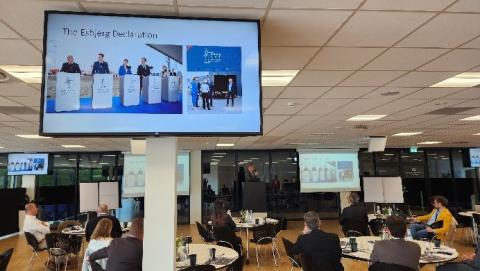
|
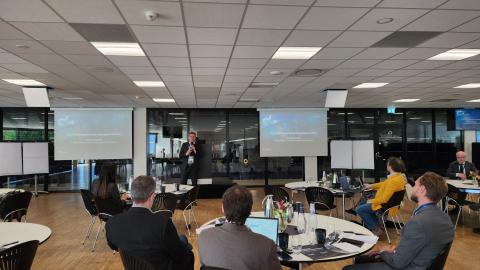
|
Romain Bouttier, Project Adviser at EISMEA, provided a comprehensive overview of EU funding opportunities available for clusters and innovation stakeholders, with a strong focus on programmes supporting green and digital transitions. He guided participants through how to use the Funding & Tenders Portal and introduced key EU programmes including Horizon Europe Cluster 5 (Climate, Energy and Mobility), the LIFE Programme, the European Innovation Council (EIC), the Interregional Innovation Investment Instrument (I3), the Single Market Programme (SMP) and its Euroclusters—all designed to foster strategic autonomy, innovation, and resilience across European ecosystems. He also encouraged active use of the European Cluster Collaboration Platform (ECCP) for discovering funding opportunities, connecting with partners, and accessing tools to support the green transition. Romain concluded by underlining the importance of aligning cluster initiatives with broader EU strategic priorities, such as the Green Deal Industrial Plan, the Net-Zero Age, and REPowerEU.
Lastly, Athanasios Konstandopoulos from the ECCP team spoke about project creation methodologies based on the Project Canvas and Resource Nexus Mapping. These tools enabled participants to align on challenges and define the resources, partnerships, and pathways necessary to turn ideas into viable projects.
After these presentations, participants moved into the core of the C2Lab: project co-creation workshops, facilitated by ECCP experts Antonio Novo, Daniel Cosnita, and Pauline Capus. The participants were divided into two groups and began to exchange ideas and create early-stage project concepts aligned with key EU priorities such as energy transition, digitalisation, and the circular economy. The methodology created a collaborative space where participants could identify shared interests, assess available resources, and begin outlining pathways for project funding.
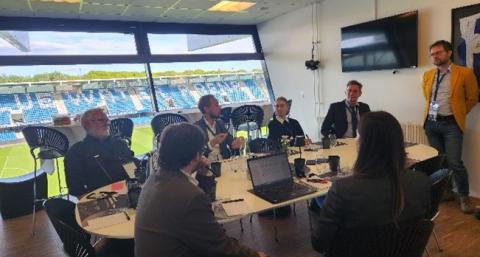
|
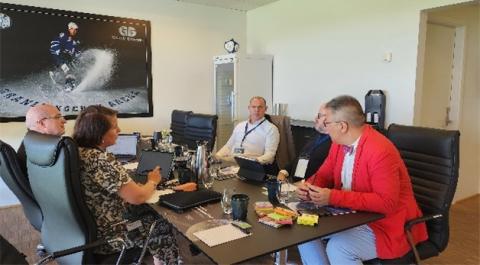
|
Day Two: Project discussions and concrete plans and new partnerships
The second day of the C2Lab was dedicated to advancing the project development and exploring investment pathways. Søren Røn, CEO of Next Step Challenge, presented the Beyond Beta programme, a tailored support initiative for Danish start-ups looking to scale and attract private investment. The programme leverages the experience of over 1,000 start-ups, providing individual mentoring, strategic support, and access to a high-value investor network. Start-ups participating in Beyond Beta have raised an average of 3.4 million DKK (approximately 455794’62 Euros), with expectations of raising a further 4.4 million DKK (approximately 589851’87 Euros) soon.
Following on from the previous day's ideas, participants keep discussing their project objectives, roles, funding strategies, and next steps, laying the foundations for high-quality transnational collaborations.
The C2Lab ended with final reflections from the European Commission, Energy Cluster Denmark, and the ECCP team. Speakers acknowledged the strong commitment of participants and the strategic relevance of the ideas developed during the Lab. “It was a great opportunity to meet with other clusters representatives, learn from each other and collaborate”, concluded Veronika Papko from Cleantech Lithuania.
The C2Lab in Esbjerg proved once again that cluster collaboration is a powerful driver of innovation, investment, and impact. For cluster organisations working on green technologies, digital transformation, and sustainability, future editions of C2Lab will offer a valuable opportunity to co-create high-impact projects and become key actors in Europe’s twin transition.
Stay connected through the ECCP and don’t miss the next chance to take part in next one!
